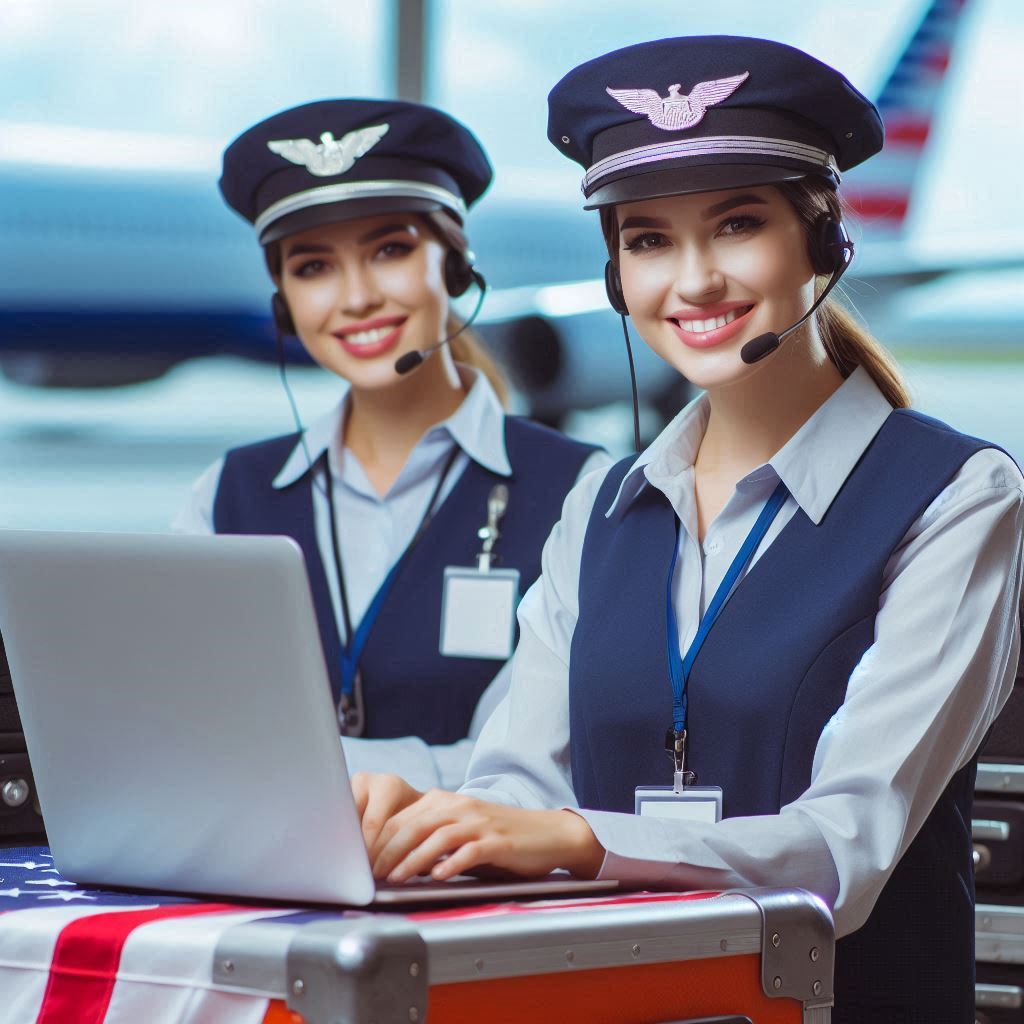Introduction
Baggage handlers play a crucial role in the aviation industry.
They manage the loading and unloading of luggage at airports.
Their tasks ensure that bags arrive safely and on time.
These professionals work in various weather conditions, often under tight deadlines.
Airlines and airports rely on baggage handlers for smooth operations.
They facilitate quick turnarounds for flights.
Efficient baggage handling improves customer satisfaction and enhances overall travel experience.
Passengers trust that their belongings will be handled carefully.
Baggage handlers ensure that trust is upheld.
In addition to handling luggage, baggage handlers perform inspections.
They check for damaged bags and report any issues.
Their attention to detail prevents potential problems during travel.
A well-functioning baggage system keeps the airport running efficiently.
The job outlook for baggage handlers appears positive.
The aviation industry is gradually recovering and expanding.
Increased travel demand leads to more flights and, consequently, more baggage handlers needed.
As airlines grow, they will require additional staff to manage luggage effectively.
Career growth opportunities also exist for baggage handlers.
Many start in entry-level positions but can advance quickly.
With experience, they may take on supervisory or managerial roles.
Some choose to specialize in areas like cargo handling or safety management.
Training and development are vital for career advancement.
Employers often provide on-the-job training.
This allows baggage handlers to gain valuable skills.
They can learn about equipment operation and safety protocols.
Certifications can enhance job prospects and lead to promotions.
Moreover, the skills gained as a baggage handler are transferable.
Workers can transition into related fields like airport operations or logistics.
This versatility expands their career options and potential earnings.
Job Outlook for Baggage Handlers
Current Demand for Baggage Handlers in the Industry
- Baggage handling is a crucial aspect of the aviation and transportation industry.
- With the increase in travel and tourism, there is a continuous demand for baggage handlers.
- Baggage handlers play a vital role in ensuring the smooth operation of airport and airline services.
- Airlines and airports are constantly looking for skilled baggage handlers to meet their operational needs.
- The demand for baggage handlers is expected to remain stable and consistent in the coming years.
Factors Influencing Job Growth in this Field
- Technological advancements in baggage handling equipment and systems.
- Increase in air travel leading to more baggage handling requirements.
- Expansion of airlines and new airport terminals leading to more job opportunities.
- Focus on enhancing customer experience and efficiency in baggage handling processes.
- Globalization and international trade leading to increased cargo and baggage handling operations.
Expected Job Opportunities in the Coming Years
- The aviation industry is projected to grow, creating more job opportunities for baggage handlers.
- Airports are expanding and upgrading their facilities, leading to a need for more baggage handlers.
- As the travel industry recovers from the impact of the pandemic, job opportunities for baggage handlers are expected to increase.
- Opportunities for career growth and advancement within the baggage handling field.
- Increased focus on safety and security measures at airports will create more job opportunities for baggage handlers.
Read: Nail Technician Networking: Building Industry Connections
Qualifications and Skills Required
Educational Requirements for Becoming a Baggage Handler
Becoming a baggage handler requires a mix of educational qualifications and essential skills.
Most positions only require a high school diploma or GED.
This basic education provides foundational skills for the job.
However, having a college degree can improve your chances for advancement.
Some airlines and ground handling companies prefer candidates with relevant training or experience.
Necessary Skills Such as Physical Strength and Attention to Detail
Physical strength stands out as a crucial requirement for baggage handlers.
These workers frequently lift heavy luggage and maneuver bulky equipment.
Therefore, maintaining good physical fitness is essential for success.
Employers often seek candidates who can demonstrate physical capability during the hiring process.
Being physically fit not only helps in daily tasks but also reduces injury risk.
Attention to detail is another vital skill for baggage handlers.
Misplacing or mishandling baggage can lead to significant problems for travelers and airlines alike.
A good baggage handler must carefully follow procedures to ensure every piece of luggage is accounted for.
They need to double-check labels and tags to avoid mistakes.
This focus on detail helps maintain a high level of customer satisfaction.
In addition to physical strength and attention to detail, teamwork is crucial.
Baggage handlers often work in teams to load and unload luggage.
Strong communication skills contribute to effective collaboration among team members.
Clear communication helps avoid accidents and ensures tasks are completed efficiently.
Training and Certifications That May Be Beneficial for Career Advancement
Training plays a significant role in preparing baggage handlers for their jobs.
Many companies provide on-the-job training for new hires.
This training usually includes safety protocols and handling procedures.
Employees learn how to operate various equipment safely, such as conveyor belts and tugs.
Certifications can also enhance a baggage handler’s credentials.
Courses in safety management or hazardous materials handling may be beneficial.
Obtaining a forklift operator certification can also be an advantage.
These certifications may open doors for career advancement within the airline industry.
As baggage handlers gain experience, they can pursue more specialized roles.
Opportunities may include supervisory positions or training roles for new employees.
Continuing education and skills development can lead to promotions and increased earning potential.
In short, becoming a successful baggage handler requires a combination of education, physical capability, and essential skills.
Attention to detail, teamwork, and effective communication further enhance a candidate’s qualifications.
Pursuing additional training and certifications can provide a competitive edge.
With the right preparation and dedication, individuals can enjoy a rewarding career in this field.
Read: The Role of Technology in Modern Pet Grooming
Career Growth Opportunities
As a baggage handler, there are numerous career growth opportunities that can help you advance in your career within the aviation industry.
Whether you are just starting out or have been in the field for some time, there are various paths you can take to further your professional development.
Potential for Advancement within the Company
One of the main benefits of working as a baggage handler is the potential for advancement within the company.
Many airlines offer opportunities for promotion based on performance, experience, and dedication to the job.
By consistently exceeding expectations and taking on additional responsibilities, you can position yourself for higher-level positions within the baggage handling department or other areas of the airline.
Possibility of Transitioning to Other Roles in the Aviation Industry
Another attractive aspect of being a baggage handler is the possibility of transitioning to other roles in the aviation industry.
With your experience in handling baggage and understanding of airport operations, you may find it easier to move into positions such as ramp agent, aircraft dispatcher, or even customer service agent.
These roles can offer new challenges and opportunities for growth while allowing you to continue building on your existing skills.
Opportunities for Leadership Positions or Supervisor Roles
For baggage handlers who are interested in taking on more responsibility and leading a team, there are opportunities for leadership positions or supervisor roles within the baggage handling department.
By demonstrating strong leadership qualities, effective communication skills, and the ability to motivate and inspire others, you can show your readiness for a supervisory role.
This can not only provide a chance to make a positive impact on your team but also pave the way for further career growth within the company.
Generally, a career as a baggage handler offers a range of career growth opportunities that can help you advance in the aviation industry.
Whether you aspire to climb the ladder within the baggage handling department or transition to other roles, there are paths you can take to achieve your professional goals.
By staying committed to your job, seeking out new challenges, and expanding your skills, you can position yourself for success and open up exciting possibilities for your future.
Read: Customer Service Tips for Pet Grooming Professionals

Salary and Benefits
Average Salary Range for Baggage Handlers
The average salary range for baggage handlers typically falls between $28,000 and $38,000 annually.
This amount can vary based on location, experience, and the employer.
Some employers offer competitive salaries to attract skilled workers.
Larger airlines often pay higher wages than smaller carriers. In major cities, the demand for baggage handlers can drive salaries up.
Many handlers also receive overtime pay, increasing their total earnings.
Those willing to work during peak travel seasons can benefit significantly.
Additional Perks and Benefits Offered by Employers
In addition to salary, baggage handlers enjoy various perks and benefits.
Health insurance is a common benefit provided by many employers.
This coverage often includes medical, dental, and vision plans.
Paid time off is another significant perk.
Handlers usually receive vacation days and sick leave.
Some airlines even offer paid holidays, which add to the overall benefits package.
Retirement plans are also a valuable part of the compensation.
Many employers provide 401(k) plans to help employees save for the future.
Some companies match employee contributions, which boosts retirement savings.
This benefit encourages long-term employment and financial stability for baggage handlers.
Employee discounts on flights and travel are popular perks in the airline industry.
Many baggage handlers can enjoy discounted tickets for themselves and their families.
This benefit allows employees to travel at reduced costs.
The chance to explore new destinations attracts many individuals to this profession.
Incentives for Performance and Tenure
Employers often offer incentives for performance and tenure.
Many airlines implement bonus structures based on individual and team performance.
These bonuses can significantly enhance overall earnings for baggage handlers.
Furthermore, employees who demonstrate loyalty and long service often receive additional rewards.
Tenure can lead to promotions, salary increases, and additional responsibilities.
Training and development opportunities are also common benefits.
Many airlines invest in training programs to enhance employees’ skills.
This investment leads to career growth and advancement opportunities.
Baggage handlers who excel in their roles can move into supervisory positions or other airline operations.
In summary, the salary and benefits for baggage handlers are competitive.
With a good starting salary and various perks, this profession offers solid financial prospects.
Employers support career growth through performance incentives and additional benefits.
Baggage handling can be a rewarding career for those looking for stability and opportunities in the airline industry.
Read: Nail Technician Etiquette: Dos and Don’ts
Challenges and Responsibilities
Common challenges faced by baggage handlers in their day-to-day work
- Heavy lifting of luggage leading to physical strain
- Tight deadlines and pressure to quickly load and unload planes
- Working in various weather conditions like rain, snow, or extreme heat
- Dealing with difficult passengers or co-workers
- Ensuring accuracy in sorting and transporting baggage to the right destination
Responsibilities of a baggage handler beyond just handling luggage
- Ensuring safety protocols are followed while loading aircraft
- Inspecting baggage for any prohibited items or hazardous materials
- Communicating effectively with airline staff for smooth operations
- Handling customer service inquiries or complaints professionally
- Keeping work areas clean and organized to prevent accidents
Ways to overcome challenges and excel in this role
- Stay physically fit through regular exercise and proper lifting techniques
- Develop time management skills to meet deadlines efficiently
- Prepare for different weather conditions by dressing appropriately
- Practice patience and conflict resolution techniques for interpersonal issues
- Attend training sessions to improve knowledge of safety regulations and procedures
Job Satisfaction and Fulfillment
Personal satisfaction derived from helping passengers and ensuring smooth travel experiences
Working as a baggage handler can be a rewarding and fulfilling career choice for individuals who enjoy working in a fast-paced environment and have a passion for the aviation industry.
Baggage handlers play a crucial role in ensuring that passengers’ luggage is safely loaded and unloaded from aircraft, as well as transported to the correct destination.
This level of responsibility can bring about a sense of personal satisfaction for those who take pride in their work.
Connection to the broader aviation industry and the excitement of air travel
In addition to the satisfaction derived from helping passengers and ensuring smooth travel experiences, baggage handlers also have the opportunity to feel connected to the broader aviation industry.
Being a part of the process that keeps air travel running smoothly can be exciting and fulfilling for individuals who are passionate about aviation and travel.
Furthermore, baggage handlers contribute to the overall success of an airline by ensuring that luggage is handled efficiently and that flights depart on time.
Fulfillment in contributing to the overall success of an airline
This level of responsibility can bring about a sense of fulfillment for individuals who take pride in their work and understand the importance of their role in the airline industry.
Overall, job satisfaction and fulfillment are important aspects of a baggage handler’s career.
By taking pride in their work, staying connected to the aviation industry, and contributing to the success of an airline, baggage handlers can find fulfillment in their role and enjoy a rewarding career in the aviation industry.
Transform Your Career Today
Unlock a personalized career strategy that drives real results. Get tailored advice and a roadmap designed just for you.
Start NowConclusion
Baggage handlers can advance to supervisory roles after gaining experience.
With additional training, they can become lead baggage handlers.
Opportunities for career advancement vary by employer and location.
Baggage handlers can also transition to other roles within the aviation industry.
Further education in logistics or management can open up more opportunities.
Networking with industry professionals can help in career growth.
Job Outlook for Baggage Handlers
The job outlook for baggage handlers is expected to remain stable.
As long as air travel continues to grow, there will be a demand for baggage handlers.
Automation may affect the number of job openings in the future.
Baggage handling is a physically demanding job, but it can be rewarding.
In the end, the job outlook for baggage handlers is steady.
There are opportunities for career growth and advancement.
For those considering a career as a baggage handler, gaining experience and additional training is key.
Researching further into logistics and management can help in career progression.
Overall, pursuing a career as a baggage handler can lead to fulfilling opportunities in the aviation industry.
[E-Books for Sale]
The Big Book of 500 High-Paying Jobs in America: Unlock Your Earning Potential
$19.99 • 500 High-Paying Jobs • 330 pages
Explore 500 high-paying jobs in America and learn how to boost your career, earn more, and achieve success!
See All 500 High-Paying Jobs of this E-Book
1001 Professions Without a Degree: High-Paying American Jobs You Can Start Now
$19.99 • 1001 Professions Without a Degree • 174 pages
Discover 1001 high-paying jobs without a degree! Unlock career tips, skills, and success strategies for just $19.99!




